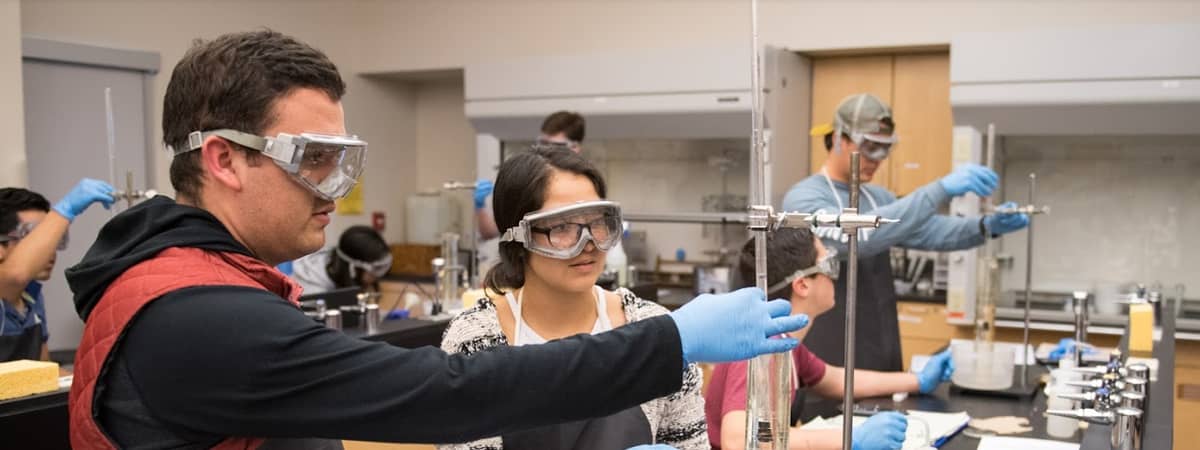Are you a curious person who is always looking to understand the world around you? If you are ready to learn how the world and everything in it works, then Allan Hancock College’s physics program is for you!
Physics is the science that explains how objects and energy interact with each other. It is the most fundamental of all the sciences; biologists, chemists, computer scientists, and especially engineers utilize the core concepts of physics. Studying physics will help students understand conceptually what happens in any given physical scenario, compute predictions of how fast or how far things will go, learn to simulate physical phenomena (with coding), and clearly and concisely communicate these processes.
Allan Hancock College’s physics program has engaging coursework that will allow students to test the performance of electric circuits, analyze patterns and images formed by light, evaluate temperature and phase changes of machines exposed to heat, code simulations of motion to compare to data from video tracking, model the behavior of objects subjected to multiple forces, and more. In addition, students will develop their communication and collaboration skills by presenting information to instructors and peers through both formal and informal reports.
Graduates of the physics program are prepared for entry-level careers as computer programmers, lab technicians, or research assistants. Students may also choose to transfer to a four-year university for further study.
This program will help you to:
- demonstrate knowledge of the fundamental laws of physics and physical terminology
- apply physical principles to solve a variety of simple problems
- demonstrate the proper use of physical apparatus for testing and observing physical theories
- write scientific reports on a given experiment indicating the significance of the experiment and the degree to which the results verify a principle or law
- analyze complex problems to identify single principle components and synthesize from multiple concepts
Degrees and Certificates Offered
Each program has unique requirements. The order in which you take courses may affect your completion time. Visit the links below to view the program requirements and a general semester-by-semester course schedule.
Associate in Science for Transfer- Physics
To view all available degrees and certificates visit the Allan Hancock College course catalog.
Programs you may also be interested in exploring:
Contact Information
Department Chair
Wendy Hadley
805-922-6966 ext. 3841
wendy.hadley@hancockcollege.edu
Administrative Assistant
Christina McMillan
805-922-6966 ext. 3202
cmcmillan@hancockcollege.edu
Dean, Academic Affairs
Sean Abel
805-922-6966 ext. 3537
sean.abel@hancockcollege.edu
LOCATION
Santa Maria Campus
Bldg. M
Map of Building M Locations
805-922-6966 ext. 3202


